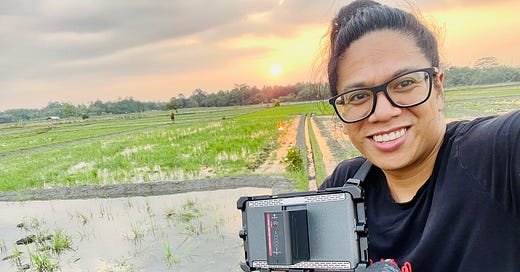With a new season comes new changes. But before fall is here and gone, I wanted to take time to reflect on the summer days that have meaningfully shaped me and the trajectory of my documentary.
In June, Lydia and I participated in the Eye Catcher International Pitching Forum. It was an opportunity to pitch our documentary film to a panel of experienced filmmakers and industry professional alongside other filmmakers developing their projects here in Hong Kong. It was our first time participating in an event like this, and it was a great experience to meet other local filmmakers and get feedback on how to improve our storytelling. It was also gratifying to be one of the awardees of the Grand Award for feature-length films that are currently in progress! The award provided a sense of validation that we were on the right track while also providing important grant money to help push the filmmaking process forward.
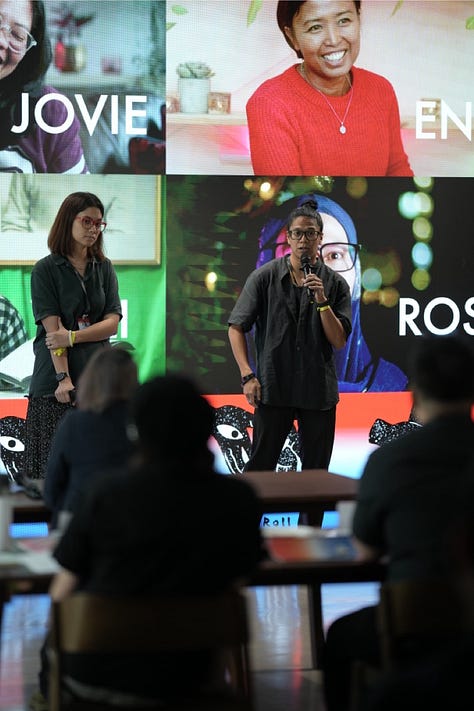
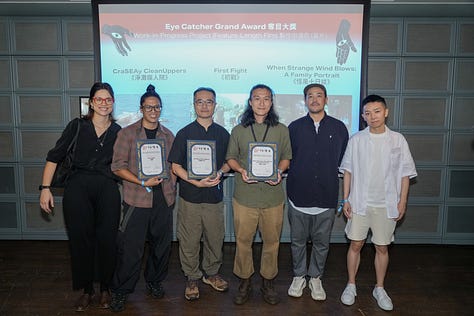
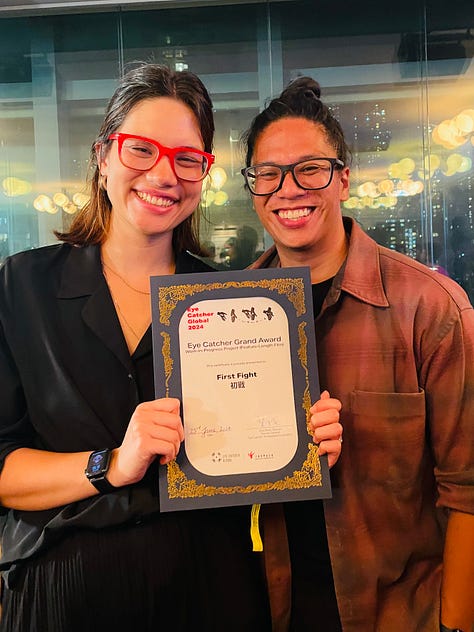
In July, I headed to Indonesia to follow Eni, one of the film’s protagonists, and to visit family members of the migrants we interact with weekly here in Hong Kong. As I visited the migrants’ families, I felt like I was a stand in to receive the love and care that family members wished to express to their loved ones abroad if only they could be together. Everywhere I went, I was warmly welcomed and continuously fed.
Being there also gave me a deeper sense of the impact migration has on communities. There were many sobering moments. I witnessed a migrant worker’s daughter cry as she read a hand-written letter we delivered from her mom in Hong Kong. I listened to a migrant’s husband reminisce about his favorite date with his wife while expressing his desire for her to come back home so they could spend more time together.
Being entrusted with these stories and memories is always a gift. But these moments are also transformative. They speak to the deepest parts of me that make me question why systems are set up to perpetuate this kind of separation and feeling of loss. And at the same time, I marvel at the resolve that migrant women have to keep fighting for one another, so they can live in a world where this kind of separation and loss doesn’t have to be a generational cycle. So I too feel renewed to tell the stories of migrants and to continue working with them to address the harsh material realities they and their families face.
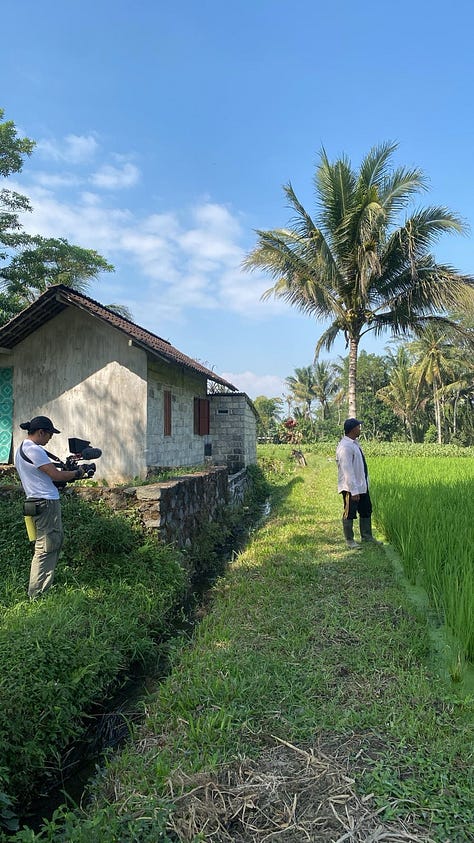
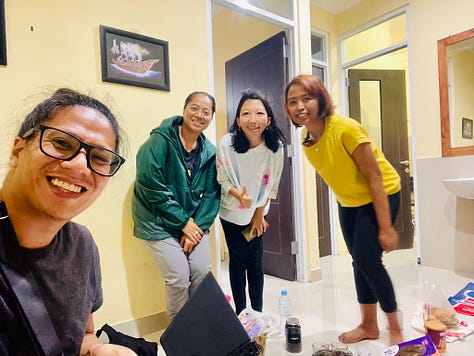
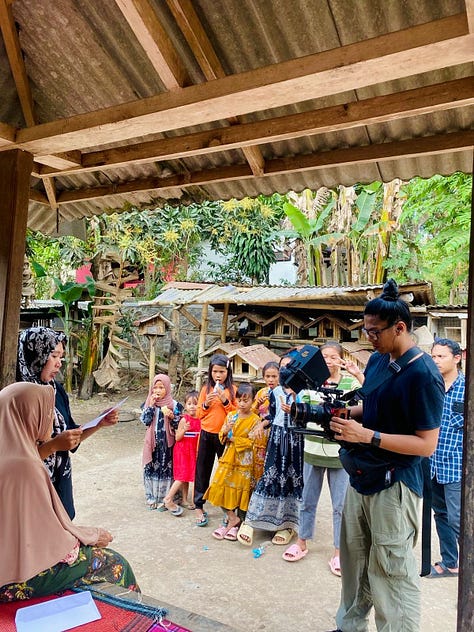
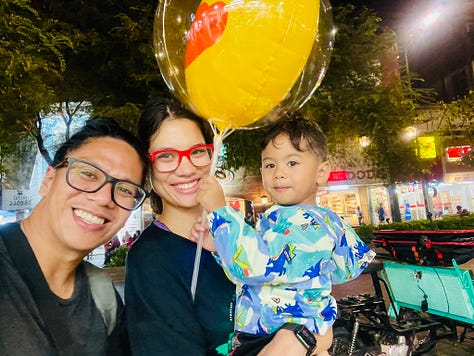
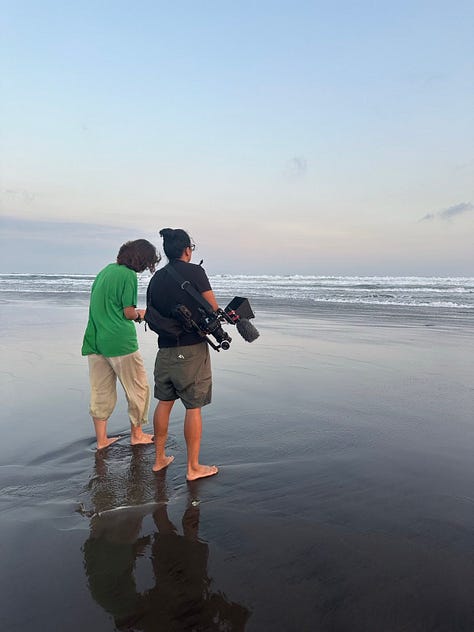
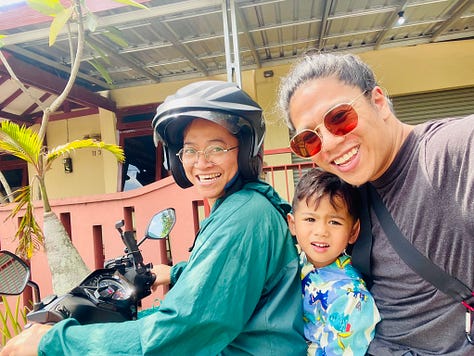
In August, I traveled to the Philippines with Jovie, another migrant worker I follow in the film. We were only able to be there for a weekend as it was an unexpected trip to attend the funeral of Jovie’s aunt, a former migrant worker herself. This trip reminded me of how much a migrant misses when they are away. Both in life and death are special moments to commemorate. So in just small span of time, we buried a loved one in the cemetery and celebrated an upcoming birthday at Jollibee.
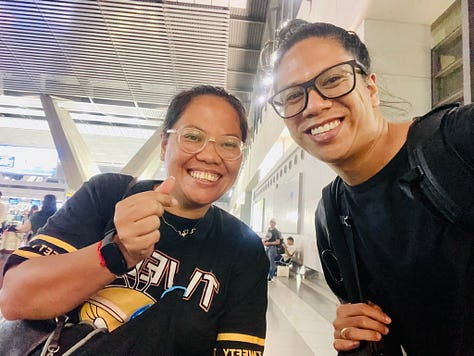
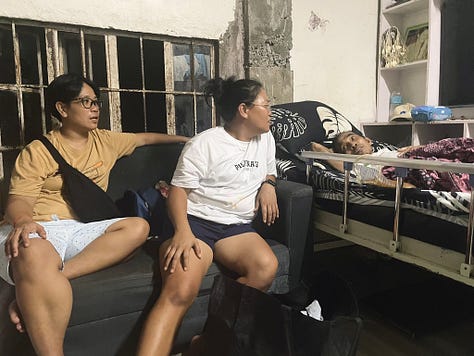
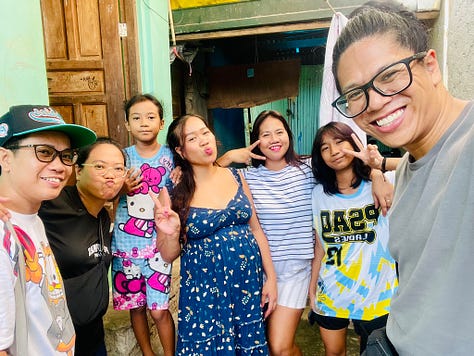
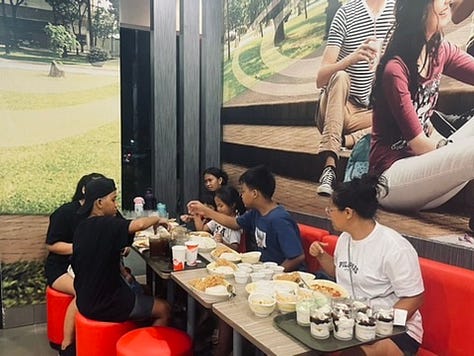
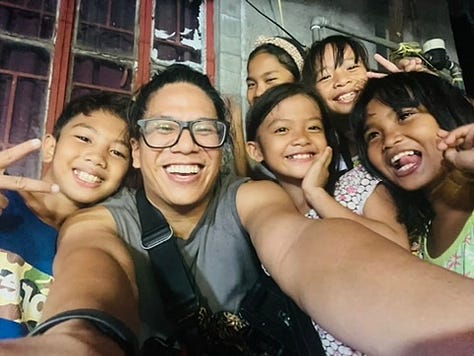
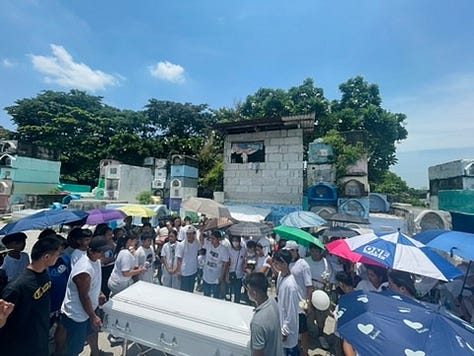
Thinking back on the summer, I am reminded of how much this film is truly a community endeavor. From the beginning, the migrants here in Hong Kong have embraced the idea of making a film about a tiny shelter that cares for migrants in need. The residents of the shelter have taken me in and have invited me to be received by their families back home as well. As much as I would like to think I’m doing something important in documenting stories of the migrant community, I am continually reminded that they are doing something equally as significant for me. My world is being reformed and reconfigured to care more deeply, to see more profoundly, and to love more specifically thanks to the lessons they have taught me.


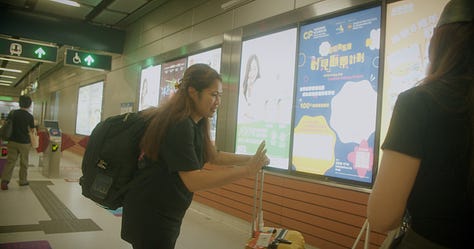
This week also marked Yuli’s last day at Bethune House. She is the main character we have been following at the shelter for almost 6 months now. She is starting work again. And while she is happy to return to work, she also expresses sadness at leaving the shelter. In a recent Facebook post, she calls Bethune House a “second home” and the “place [where] I feel like I was reborn.” It is a new season for Yuli. The summer is gone, and the autumn winds bring welcome change. She hasn’t been able to see her family for over 5 years, but she can work and send them money again. She continues to take steps to be reunited with her family. But she has also responded to the call to fight with her fellow migrants, so they can be reunited with their families too. It’s a long journey ahead, but being at the shelter has renewed her resolve.
So the story continues…

I look forward to sharing more about how the film progresses and how the shelter continues to survive and empower migrants to fight for a better day. In the mean time, you can also personally support the work of Bethune House. As I mentioned in my previous post, the shelter is in danger of closing because of a loss of expected grant money that now leaves them in a deficit. If you want to learn more about the situation and how you can give, check out Bethune House’s Save Our Shelter campaign. Lydia and I have been invested in giving to the shelter beyond this campaign because we recognize the work they do as being critical to supporting the larger migrant movement in Hong Kong and beyond, so it is something that we feel particularly drawn to invite others to be part of as well. Let’s fight together to keep Bethune House’s doors open to more migrants like Yuli.
Thanks as always for following along!
Francis Catedral is a Filipino American documentary filmmaker and Masters of Divinity graduate. His documentary projects are about the transnational activism of migrant domestic workers in Hong Kong and beyond.
